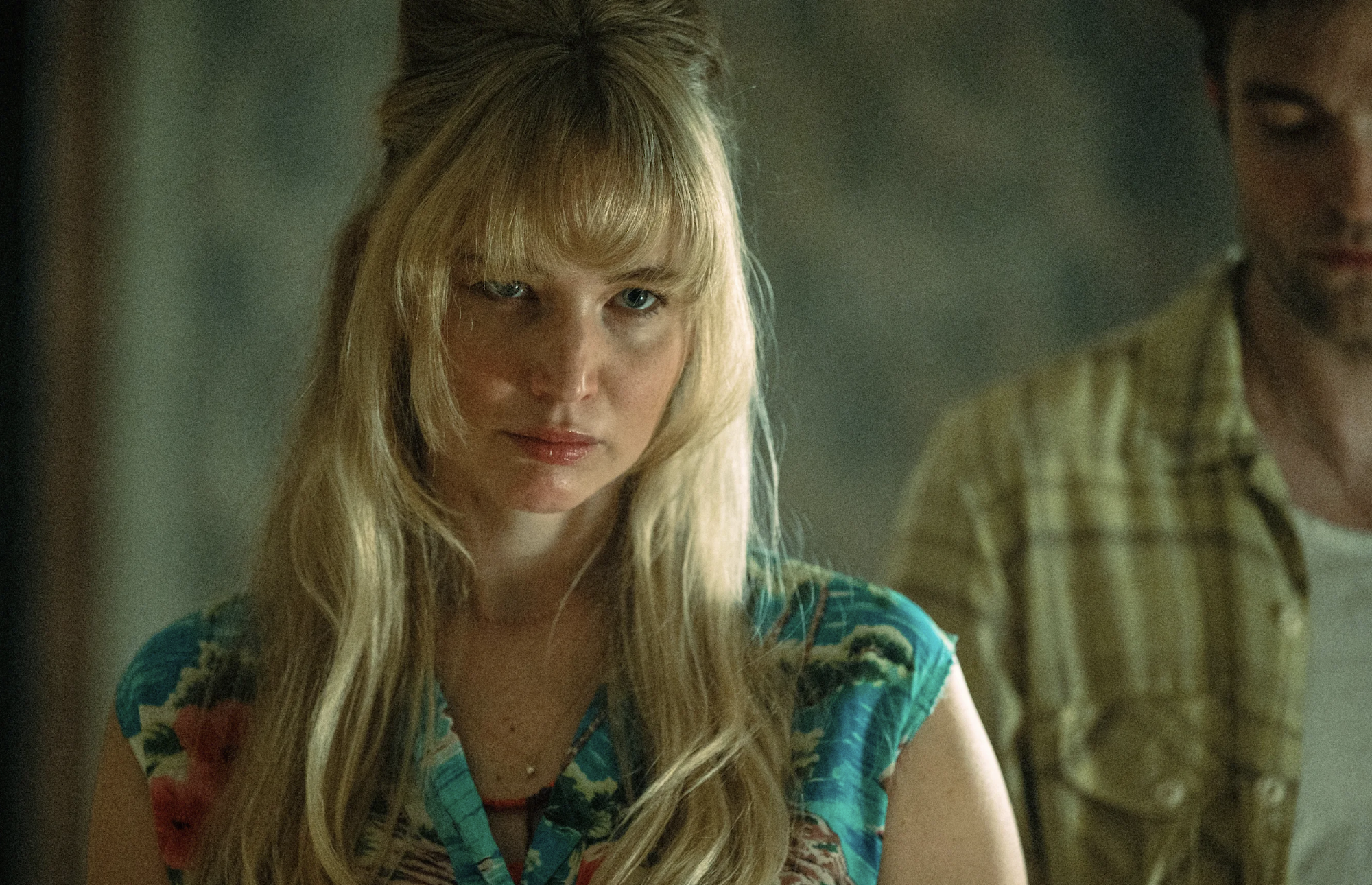
"It's more about the power and urges of a woman who, like a beautiful, feral creature, is not taking to domestication. Grace and Jackson have moved near his childhood home. Their house belonged to Jackson's uncle before he killed himself. Jackson's parents (Nick Nolte, Sissy Spacek) live nearby, and Spacek's knowing eyes suggest they went through something not so dissimilar long ago, casting Grace's struggles as part of a long, gothic American history."
"But clarity is also not what Ramsay is after. Working from a script she penned with playwrights Enda Walsh and Alice Birch, Ramsay sticks resolutely to Grace's disturbed perspective. The sound design, by Tim Burns and Paul Davies, is purposefully chaotic, filled with barking and the children's music Grace blares as she stomps half naked through the house, ignoring housework and indulging in sexual fantasies. (LaKeith Stanfield has a small, peculiar part.)"
Grace and Jackson move near Jackson's childhood home, inheriting a house with a tragic past tied to his uncle's suicide. Grace resists domestic expectations, behaving wildly and indulging in sexual fantasies while neglecting household duties. The film centers strictly on Grace's disturbed perspective, using chaotic sound design and fragmented storytelling to reflect her inner life. Performances include Jennifer Lawrence as Grace and Robert Pattinson as Jackson, with Nick Nolte and Sissy Spacek as Jackson's parents. The narrative frames Grace's struggles as part of a broader, gothic American lineage rather than a simple case of postpartum depression.
Read at Kqed
Unable to calculate read time
Collection
[
|
...
]